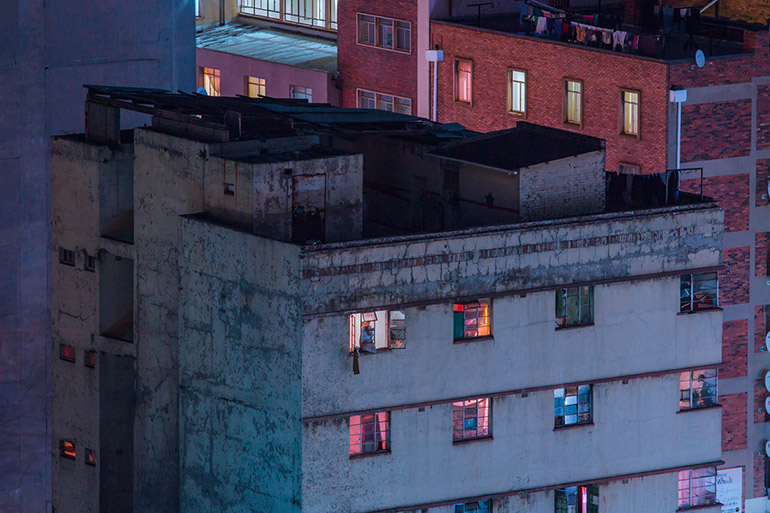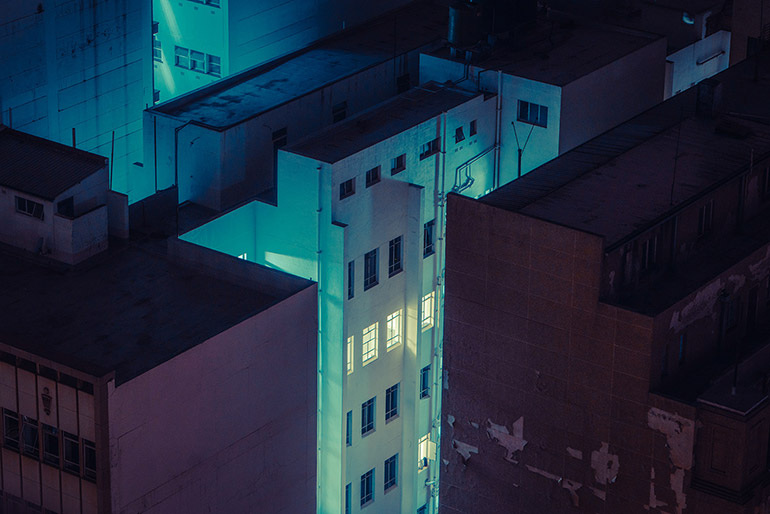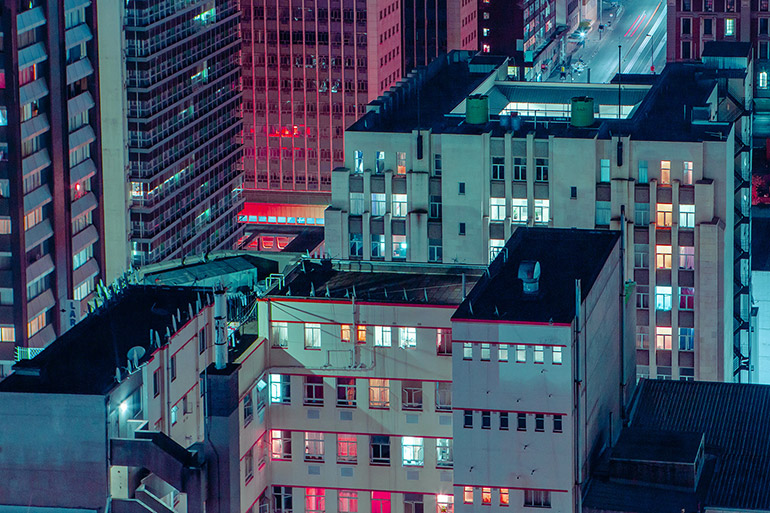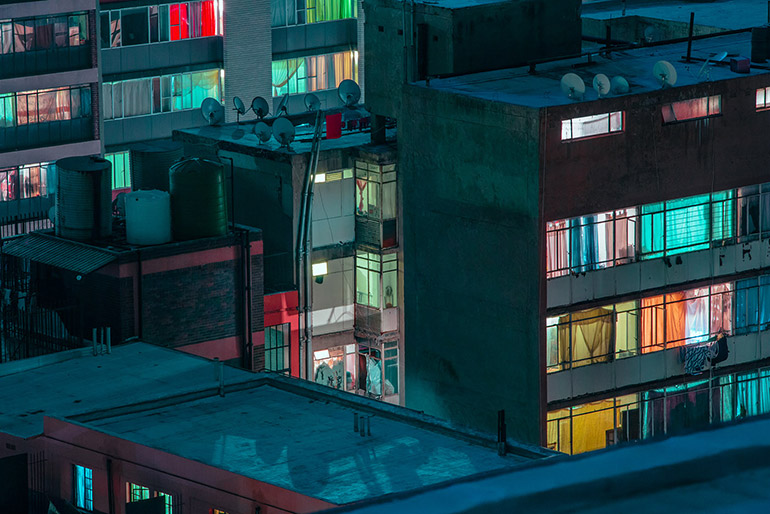Elsa Bleda
Everything you gather throughout life with the aim of enriching your body and soul has a price. What matters is the will to step into the darkness with everything you’ve got, or just like photographer Elsa Bleda, the ability to muster the strength and passion to get onto the city’s rooftops with ever-renewed enthusiasm each time. Elsa first relocated to South Africa to complete her education, but instead, found a home and her unique brand of artistic self-expression there. We asked her about her drive to create, how her surroundings nourish her, her dreams, and recommendations on local music.
Looking back on your life, would you say there has been a critical threshold that you’ve crossed, which paved the way for where you are now? Or would you rather describe yourself as someone who has been riding a train with a precise destination all along?
I wouldn’t say there was a threshold. My interests and the things I want out of life have been clear to me ever since I was a child. From then on, it was just a matter of drifting towards these. But of course, I always kept a door open for surprises.

You are currently involved with numerous projects, having most recently launched an exhibition titled “Nightscapes” with Red Bull. What are you up to these days?
Nightscapes was built around Johannesburg and took shape as part of Red Bull’s Weekender Festival. The public response was more than satisfactory. I am currently in Cape Town for a much larger solo exhibition, also organized by Red Bull. The photography will be centered on Cape Town this time. The exhibition will open in February, as part of the Cape Town Electronic Music Festival. I have also signed on with Star Films in South Africa as a director very recently, which was tremendously exciting for me.

Your photographs seem like stills from a movie; they make the onlooker wonder about the before and the after of that snapped moment. What is the element that drives you to rooftops and makes you photograph things the way you do?
I have this constant drive to create and photograph. Ever since I managed to carve out my own way of self-expression, I can safely say that my power to create and my efficiency have both gradually increased. The town I live in is a big part of that – Johannesburg is a city that is constantly inspiring to me.
I like to do things on my own, and when I go onto the top of a building or stand on a street, the photographs that I take are directly related to the connection between me and the city. This is the kind of dialogue where I can project my mindscape onto a plain and the city corresponds to it. I am also a big fan of metamorphosis – I like to think that my photographs transform their locales, and to speak frankly, it comes naturally to me.
Could you tell us a little bit about your life in South Africa? What is it like for you there? What makes you happy about living in South Africa?
After living in Cape Town for a while and completing my training in sound engineering and music production, I relocated to Johannesburg seven years ago. I still travel frequently between two towns. Cape Town is heavenly, but it is the kind of place where the pace of things is rather slow and laid back, which also goes for this industry in particular. It radiates a holiday vibe in general. Johannesburg, on the other hand, is a wholly different world that is indescribable in itself. It is a fast paced city, people are constantly producing things. Its unique and creative industry recently began garnering a lot of international attention. I must also confess that the city has this strange, dystopian and intriguing architecture to it that constantly inspires me.

If you had the chance to work with the Oscar winning cinematographer Emmanuel Lubezki, whom I know you admire, what kind of a project would it be?
There are an endless number of possibilities if I had the chance to work with Lubezki. I think I’d like to shoot a sci-fi movie in Russia with him, maybe adapt a book by the Polish writer Stanisław Lem.
Let’s talk about the local music scene. There are plenty of talented musicians and artists from different genres in South Africa, but from what I can discern, they have little opportunity to perform outside the country. What are your thoughts and observations on that?
From what I can tell, 2016 has been a fruitful year in that sense. South African artists had success in making waves outside the country. There is a current surge of change in various art forms throughout the country, from photography, to music, dance and film – and the international press is starting to catch wind of that. There is a tremendous amount of interest in South Africa’s subcultures.

We’d like to follow in your steps for a bit. Would you like to recommend some noteworthy local acts?
I mostly listen to the left field artists. Petite Noir has been doing some incredible stuff recently, and he is also beginning to get worldwide recognition. His visual work is also impeccable. I also listen to Spoek Mathambo, Dear Ribane, Nakhane Toure.
Çağrışımlar
Johannesburg: İlham
Fotoğrafçılık: His
Tren: Nostalji
Sualtı: Özgürlük
Kedi: Ev
2016: Başlangıçlar
Rüyaların: Filmler
Uzay: Cevaplar
Free Word Association
Johannesburg: Inspiration
Photography: Feelings
Trains: Nostalgia
Underwater: Freedom
Cats: Home
2016: Beginnings
Dreams: Movies
Space: Answers
Interview by Taner Turna